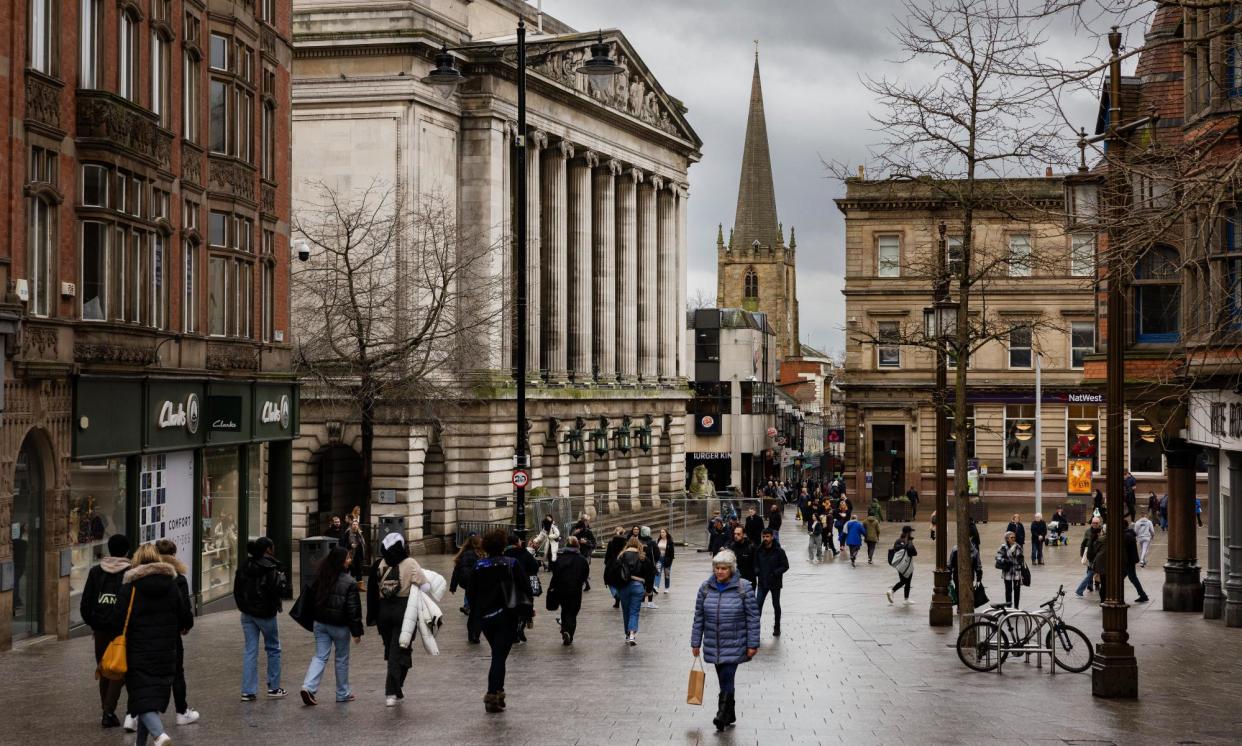English councils need £4bn to prevent widespread bankruptcy, MPs say

Ministers must urgently inject £4bn into English town hall budgets to head off an “out of control” financial crisis that threatens to drag well-run councils into bankruptcy and put local services at risk, a cross-party group of MPs has warned.
The levelling up, housing and communities committee said government must act now to help councils stricken by shrinking resources and the costs of rising demand for adult social care, child protection, homelessness and special educational needs provision.
It said the current local government funding system was broken and that the next UK government must conduct an urgent review of what councils do and how local services are paid for, including an overhaul of “outdated and regressive” council tax.
The committee’s inquiry report follows growing evidence of “financial distress” in local authorities. Eight English councils have declared themselves in effect bankrupt since 2018, including four in the past 12 months, while many more have signalled drastic spending cuts as they attempt to avoid potential insolvency.
A recent Guardian investigation has revealed how English councils are planning to increase council tax bills by £2bn from April, while looking to slash “non-core” services and jobs, and sell off land, buildings and other assets, in an attempt to balance their budgets after more than a decade of cuts.
The committee’s chair, Clive Betts, said: “There is an out-of-control financial crisis in local councils across England. Councils are hit by a double harm of increased demands for services while experiencing a significant hit to their real-terms spending power in recent years.
“The government must use the local government financial settlement to help bridge the £4bn funding gap for 2024-25 or risk already strained council services becoming stretched to breaking point. If the government fails to plug this gap, well-run councils could face the very real prospect of effectively going bust.”
Last week the government announced a £600m boost for English councils – most of it earmarked for social care services – after a threatened revolt by Tory backbench MPs angry that local services were being slashed while council tax was rising. Councils have warned the extra cash would not tackle the underlying financial problems.
Although ministers have sought to portray failing councils such as Woking, Birmingham and Nottingham as one-off victims of poor management and reckless investments, the committee’s report says years of underfunding have created a “tipping point” for many councils across England.
The committee calls for an overhaul of council tax and business rates as part of a wide-ranging review of council funding to ensure it is fair and sustainable. “There is widespread agreement that council tax is outdated, regressive and overdue for reform,” the report says.
It calls for a revaluation of domestic property values, which have not been assessed since 1991, meaning owners of valuable homes pay proportionately less council tax than owners of the least valuable. This week the Economist reported that Buckingham Palace pays £1,828 a year in council tax – less than a three-bed semi in Blackpool.
The report identifies three main areas of pressure on councils:
Adult and children’s social care, which is consuming 70p of every £1 of top-tier council spending, forcing them to close or shrink nonstatutory services such as leisure, parks, recycling and economic development. The report highlights soaring bills charged by privately run children’s homes.
A £3.6bn deficit incurred by an explosion in plans catering for pupils’ special educational needs and disabilities. The deficit, allowed to continue off the books under a special “override” agreement with ministers, is due to be repaid in March 2025.
Rising homelessness, which has left councils struggling to source expensive temporary housing for families evicted as a result of freezes in local housing allowance. Although ministers plan to uplift the allowance for a year from April, the respite will be only temporary, the report says.
The overall £4bn shortfall in funding identified by the committee matches estimates by the Local Government Association, which has calculated that an extra £2.4bn in 2023-24 and £1.6bn in 2024-25 is needed to maintain services at current levels.
Pete Marland, the Labour chair of the LGA’s resources board, said: “The amount of funding available to councils is out of line with the requirements placed upon them. As well as needing to address this, any incoming government needs to give urgent attention to the entire system of funding local government to deliver vital local services, including reform and legislative change.”
A spokesperson for the Department for Levelling Up, Housing & Communities said: “We recognise councils are facing challenges and that is why we recently announced an additional £600m support package for councils across England, increasing their overall proposed funding for next year to £64.7bn – a 7.5% increase in cash terms.
“This additional funding has been welcomed by leading local government organisations, but we remain ready to talk to any concerned council about its financial position.”


